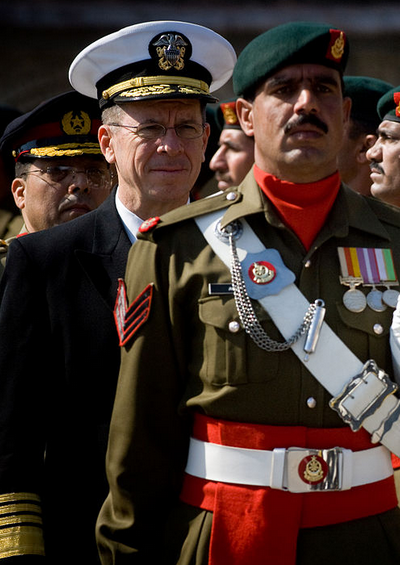May 8, 1945: Beyond the Unconditional Surrender of German Forces
The ominous date also marks the beginning of violence and occupation in Algeria, Greece and Eastern Europe.
May 8, 2015

It’s the 70th anniversary of the unconditional surrender of German forces. This event is rightfully celebrated all over Europe as the day of liberation from Nazism – hence the big parades in Moscow and often national holidays in other European countries.
But May 8, 1945 was also the day when the French army opened fire in Sétif in Algeria on demonstrators calling for national independence. Thousands were mown down in the slaughter that followed. It was the opening of the near 20-year war that followed.
And it was the day when the modern Islamic conflict with Europe might be said to have begun, as Muslim bodies fell to European bullets.
For eastern Europe, the great victory of the Red Army was the beginning of a new occupation and colonialization, as the defeat of one disastrous 20th century ideology based on suppression of freedom and European values was followed by the triumph of another one – Stalinist communism, which imposed itself by force and suppression of freedom and European values.
Civil war in Greece incited by Stalinists
The violence was worst in Greece, where ultra-Stalinists launched an armed insurrection, forcibly moving up to 500,000 people, especially children, to communist Albania, Yugoslavia and Bulgaria in order to be turned into model socialists.
The violence in Greece began a pointless and unwinnable civil war, encouraged by Moscow, which cost 80,000 Greek lives – more than those lost in the Italian and German invasions and subsequent occupation.
It took another 30 years and the Portuguese revolution before western European imperialism finally surrendered power. It had done so much damage in its former colonies by the way Britain, France and Portugal tried to cling onto power, or at least control, in its areas of influence (Iraq, Iran, Libya and Yemen for Britain; and Vietnam, Algeria and Syria for France).
The end of the post-1945 era in Europe came with the first elections in Poland in 1989, followed by the fall of the Berlin Wall.
So while fascism was destroyed, divide-and-rule imperialism by the Western powers rose up again after the 8th of May, as did Stalinist colonialism.
Ghosts of pre-1939 taking roots in the EU
Seventy years after May 8, 1945, the oasis of relative calm called the European Union faces fractures, as pre-1939 nationalism, populism and xenophobia sink roots.
Eurosceptic think tanks like Open Europe call for the EU to become de-politicized and to turn instead into only a market place. But the messy politics of power-sharing, or sovereignty-sharing, is a pre-condition for open borders for trade and for the movement of capital, ideas and people.
The lands between the Channel and the Pripet marshes, where Germans fought Russians and then an Anglosphere army, are now free of armed violence.
But all around on the North African coasts and the regions bordering the eastern Mediterranean and stretching to the Gulf, the flames of Islamist and Persian-Arab conflicts rose up.
Europe’s disastrous network in Iraq and Syria
Europe left behind a disastrous network of either feudal states in the Gulf or deformed military-authoritarian ideologies in power in Iraq and Syria.
Now the southeastern regions of Europe, like Ukraine, Moldova and Georgia, face a new aggression that would have been instantly recognized by Catherine the Great, whose key objective in the 18th century was the annexation of Crimea.
The 70th anniversary of May 8, 1945 is not a moment to hail victory but should be a time to ask why it all went so badly wrong for so many years and what mistakes are being made today that will ignite new conflicts.
Takeaways
The 70th anniversary of May 8 is not a moment to hail victory, but a time to ask why it all went so badly wrong.
May 8 is also the day when the French army opened fire in Sétif in Algeria on demonstrators calling for independence.
The violence in Greece began a civil war, encouraged by Moscow, which cost 80,000 Greek lives.
70 years after May 8, 1945, the European Union faces fractures, as pre-1939 nationalism, populism and xenophobia sink roots.
May 8, 1945 also marks the beginning of violence and occupation in Algeria, Greece and Eastern Europe.
Read previous

Global Conflict
Is Yemen a Proxy War?
May 8, 2015
